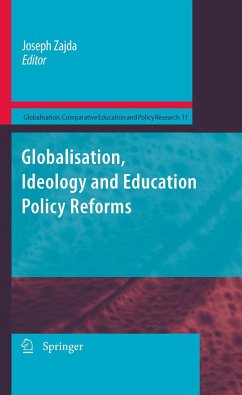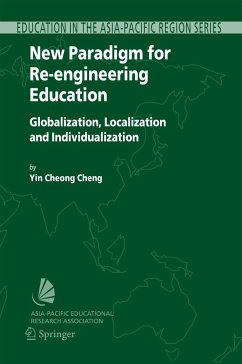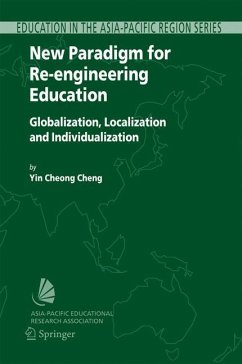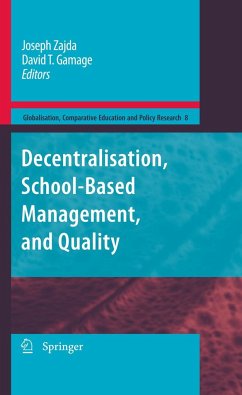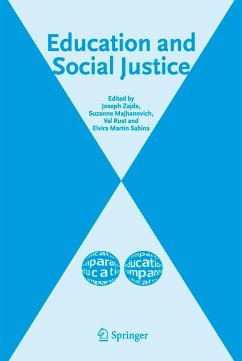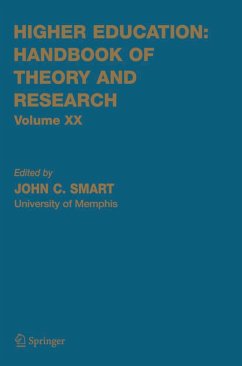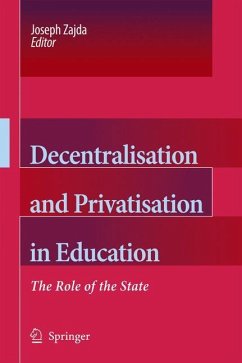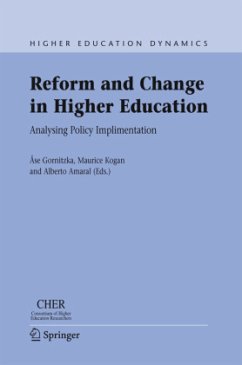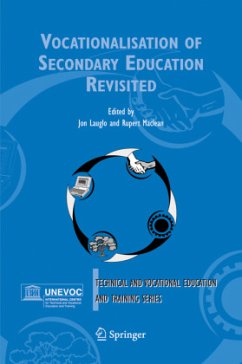
International Handbook on Globalisation, Education and Policy Research
Global Pedagogies and Policies
Herausgegeben: Zajda, Joseph

PAYBACK Punkte
258 °P sammeln!
The aim of this Handbook is to present a global overview of developments in education and policy change during the last decade. It has the objective of providing both a strategic education policy statement on recent shifts in education and policy research globally and offers new approaches to further exploration, development and improvement of education and policy making.The Handbook attempts to address some of the above issues and problems confronting educators and policy makers globally. Different articles seek to conceptualize the on-going problems of education policy formulation and implem...
The aim of this Handbook is to present a global overview of developments in education and policy change during the last decade. It has the objective of providing both a strategic education policy statement on recent shifts in education and policy research globally and offers new approaches to further exploration, development and improvement of education and policy making.
The Handbook attempts to address some of the above issues and problems confronting educators and policy makers globally. Different articles seek to conceptualize the on-going problems of education policy formulation and implementation, and provide a useful synthesis of the education policy research conducted in different countries, and practical implications.
The Handbook, by focusing on such issues as
- the OECD (2001) model of the knowledge society, and associated strategic challenge and 'deliverable goals' (OECD 2001:139)
- UNESCO-driven lifelong learning paradigm, and its relevance to education policy makers, globally
- different models of policy planning, and equity questions that are raised by centralization/decentralization, diversity/uniformity and curriculum standardization issues
- the 'crises' of educational quality, the debate of standards and excellence, and good and effective teaching.
- will contribute to a better and more holistic understanding of the education policy and research nexus; offering possible strategies for the effective and pragmatic policy planning and implementation at the local, regional and national levels.
The Handbook attempts to address some of the above issues and problems confronting educators and policy makers globally. Different articles seek to conceptualize the on-going problems of education policy formulation and implementation, and provide a useful synthesis of the education policy research conducted in different countries, and practical implications.
The Handbook, by focusing on such issues as
- the OECD (2001) model of the knowledge society, and associated strategic challenge and 'deliverable goals' (OECD 2001:139)
- UNESCO-driven lifelong learning paradigm, and its relevance to education policy makers, globally
- different models of policy planning, and equity questions that are raised by centralization/decentralization, diversity/uniformity and curriculum standardization issues
- the 'crises' of educational quality, the debate of standards and excellence, and good and effective teaching.
- will contribute to a better and more holistic understanding of the education policy and research nexus; offering possible strategies for the effective and pragmatic policy planning and implementation at the local, regional and national levels.





